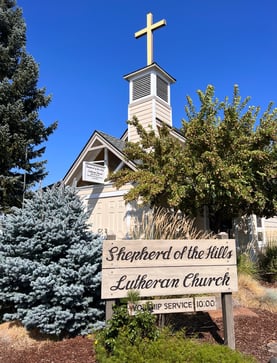The Trauma and The Church Disconnect


My wife used not to understand the way I see the world, but she seems to be getting better. Take, for instance, when I step into an elevator with her, one of the first things that goes through my mind is, "Can I fit a stretcher in here"? Now, she says it before I do. And when I go into a new home or office building, I think, "Where are the escape routes?" and "I wonder why they don't have fire sprinklers?" And it used to be very intentional that when I was a cop, when I went to a restaurant, I would always sit to see the door and everyone in the building. Now, I do it without even thinking. It seems I have a different worldview, and it affects the way I act towards the world.
Our law enforcement and fire personnel must view the world differently just to survive. While maybe 99% of the time, that traffic stop will be without incident, the police officer doesn't know when that 1% will come along. And for our fire folks, the way they go into a building may not be the way they have to leave. Frankly, the general public has no comprehension of some of the stuff that we do, see, and think about. And for their sake, we don't want them to.
The other day I was on a traumatic call. My team wound doing CPR on this person eight times in less than two hours. It bothered me a bit, so my wife suggested that I share my heart with our church home group. I didn't think it was a good idea, but I did anyway. And my concerns seemed to be well-founded. When I got done telling them (what I legally could), I realized that some of them had no frame of reference for what I did. Others, I'm sorry to say, were probably traumatized. It made me never want to do that again.
Experiences like mine are not uncommon for our first responders. They see things that nice people should not be exposed to. But because of this, they have few people they can talk to. And because of privacy laws or because of the horrific nature of the job, the things they see they can't tell their friends at church, synagogue, or mosque. This is the start of the disconnect between the first responder and his or her faith group and their spiritual life. And according to Kevin Gilmartin, author of Emotional Survival for Law Enforcement, we will see that church attendance drops for a lot of them to 50% by the 10th year of their career. And for many, it drops off completely.
So, how can we help?
Find groups of first responders that gather around faith - If you do a simple query on the net, you will find many different first responder faith groups. Although there are more Christian groups than those of other faiths, this should not keep others from coming together. Talk with others in your department to see if they know of any first responder faith groups.
Encourage mentoring and accountability partners - Encourage first responders of like faith to keep each other accountable and encourage each other in their faith, especially as it relates to what they see at work. The best person to help is always a peer who knows how you think and believe.
Don't forget the Chaplains - A trained chaplain is a wonderful resource and an always ready ear. While chaplains may not be from the same faith group, they are ready and willing to listen. And since the chaplain is part of the response team and on the "inside,” they should have a similar frame of reference.
Train first responders about behavioral health issues, especially while they are still recruits. - We need to teach our first responders about how to survive this career through to retirement. We should teach them what to look for in their lives and the resources they need to survive and thrive in this career. We are great at teaching them the skills and the tools needed to do the job, but we need to teach them how not to let this job suck the spirit right out of them. The South Carolina Lowcountry Firefighter Support Team is an excellent example of a group doing this well.
Watching out for each other. And most of all, we must watch out for our brother or sister. We are our first line of accountability. It is up to us to take care of each other.
The role of the local church/synagogue/mosque
I would be remiss not to bring some of this back to the local body of believers. For this is where it all should come home. Let me take a minute to encourage the local body of faith to reach out to their first responders. It's obvious that first responders will not share everything that is on their hearts. This will require a bit of mentorship and maybe even a little intervention. With crazy shifts, it is easy to forget about first responders if they don't show up every week. Be proactive. Your brother or sister needs you now more than ever.
